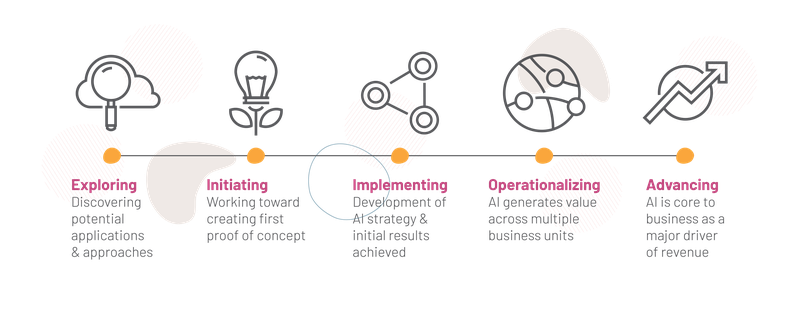Case Study
OKAKI uses AI to address the opioid crisis
Amii has helped Calgary-founded public health informatics company OKAKI plan and execute an AI project for opioid risk prediction
Overview
OKAKI provides health information consulting, analytics as a service, and custom software, working with health organizations to improve how they manage, analyze and use data. They specialize in precision health, Indigenous health, immunization programs and prescription monitoring.
As Dr. Salim Samanani, Founder and Medical Director of OKAKI, puts it: “We’re bridgers. We are a trusted partner to professional regulators, various levels of government, academia, and private sector organizations, who might not otherwise work together.”
Since their inception in 2008, the team has tackled big public health and health system problems. However, the company understood that in order to stay ahead of the curve in healthcare analytics, they would need to incorporate AI into their business and services. In Dr. Samanani’s opinion “AI will play a major role in transforming all systems, so you can’t really be leading-edge if you don’t have this competency.”
In 2019, OKAKI engaged the Amii team with their first AI project in mind: to use machine learning to save lives by preventing opioid overdoses. OKAKI already provided the technical support for Alberta’s province-wide prescription monitoring program.
Amii provided support, guidance, mentorship, and oversight to OKAKI as the team defined their ML problem and worked through their project.
Approach
OKAKI was at the Exploring stage of Amii’s AI Adoption Spectrum at the beginning of their engagement. After two six-month engagements, OKAKI arrived at the Implementing stage. This is an incredibly rapid rate of technology adoption that has informed the company’s approach to selecting and iterating on new AI and ML projects.

How did they make this significant leap?
- Educating its workforce. Working with Amii, OKAKI educated its entire management and core technical team on the language and concepts behind AI. This allowed the company to create a shared lexicon within and between teams.
- Learning how to ask the right questions. One of the main exercises that OKAKI went through is how to define the proper ML question that can be solved with available data.
- Establishing a template ML project workflow. By engaging with Amii on its first ML project, the team built a process and understood the stages of executing on ML RnD projects. OKAKI now has its own unique template for managing future ML projects.
“Working with Amii allowed us to educate our management team, recruit key internal resources with AI expertise and establish the infrastructure needed to carry out these projects. We reached a shared understanding of the language, nature, and process of an AI/ML project.” - Dr. Samanani
Results
“Going through our first ML project together with support and mentorship gave us the confidence that we can do this, and do it successfully.” - Dr. Salim Samanani, Founder and Medical Director of OKAKI
During and following its engagements with Amii, OKAKI experienced some milestone moments:
- Acquired its first major client for a commercial ML project.
- Expanded the cross-discipline ML project team to eight employees; at the onset of the engagement, they had one ML resource.
- Established a culture where technical teams and managers are more comfortable with the process of ML.
- Deployed a First Nations community chatbot in response to community-specific COVID-19 information requests.
- Created a prediction model in strategic alignment with its current business objectives.
- Connected strongly into the AI ecosystem, with booth presence at the 2019 DLRL Summer School and 2020 Artificial Intelligence in Health Care Symposium, and accessing Amii’s student researchers for talent recruitment.
Conclusion
OKAKI has established a solid foundation in AL/ML, with the ability for technical teams and managers to communicate effectively about ML concepts and projects. They are also able to translate this understanding to their clients -- in Dr. Samanani’s words:
“We can now engage with our partners, listen to their problems and goals, and incorporate AI/ML into a project scope that’s clear, defined and positioned to be successful.”
OKAKI now has eleven employees in the organization working on ML projects and has learned how, and where, to access talent for future hires. They have also acquired their first major client for a commercial ML project, with four additional ML projects in the works.
As for the initial project, the paper Safe opioid prescribing: a prognostic machine learning approach to predicting 30-day risk after an opioid dispensation in Alberta, Canada was published in BMJ Open on May 26, 2021.
Check out our Industry page for more information on how Amii can help guide and de-risk AI/ML projects in your organization.
Latest Case Studies

Apr 3rd 2023
Case Study
Venturi uses machine learning to reduce pipeline emissions
Machine learning is saving time and money while reducing emissions and increasing safety in the pipeline sector: find out how Venturi Engineering Solution is working towards the future of energy

Feb 6th 2023
Case Study
pipikwan pêhtâkwan harnesses AI to help reduce online hatred
Learn how the Indigenous communications company is exploring AI to reduce the hidden harm that comes with moderating racist comments online.

Sep 19th 2022
Case Study
Instrumar uses ML to improve quality & efficiency in fiber production
Synthetic fiber is everywhere. Learn how Canada-based Instrumar is using machine learning to improve quality and efficiency in fiber production.
